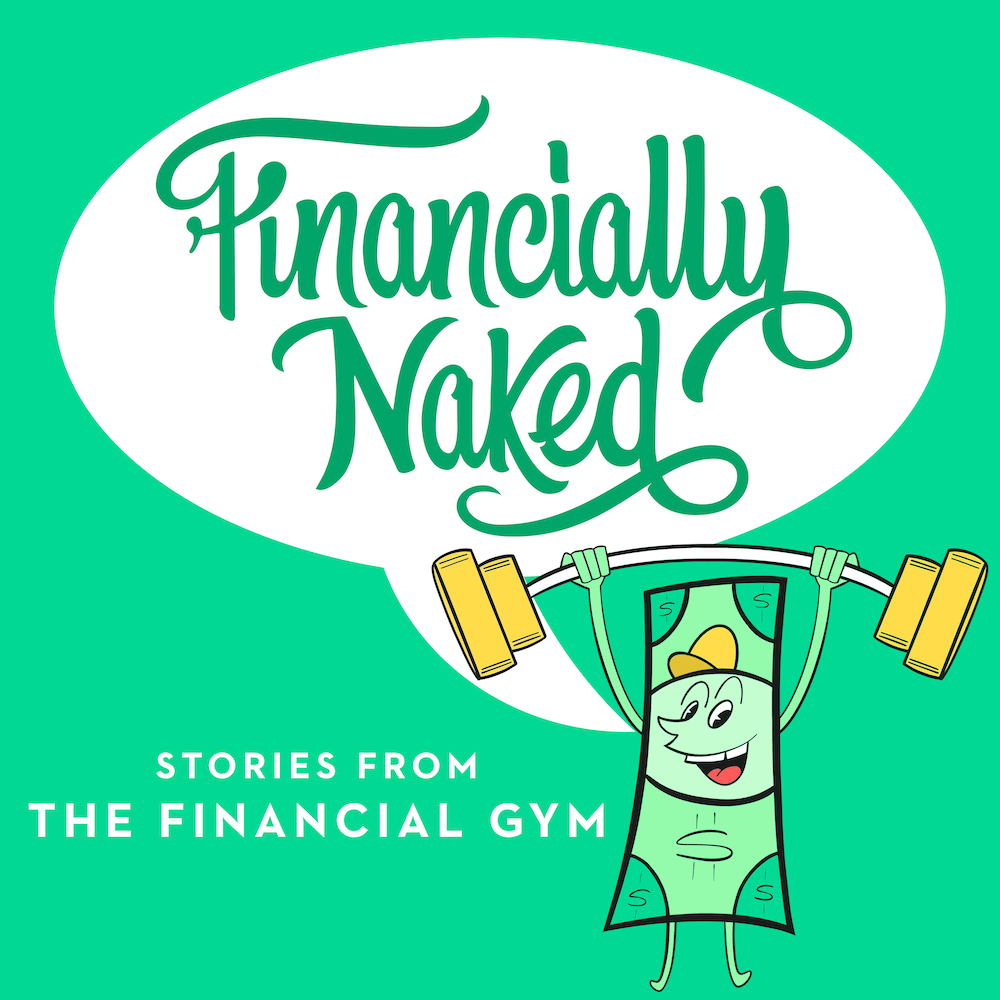Wellness and Anxiety During COVID with Kadri and Dr. Leslie Faerstein
Wellness and Anxiety During COVID with Kadri and Dr. Leslie Faerstein
On this episode of Financially Naked: Stories from The Financial Gym, our host is Kadri Augustin, Financial Trainer and Life Coach, and he is joined by Dr. Leslie Faerstein, to discuss wellness and anxiety.
Podcast Notes
Dr. Faerstein’s background is in mental health and non-profit administration. She has spent the last 40 years working with eating disorders and body image. Most recently, as she has turned 70, she has focused on women aging and body image. She also runs a private practice.
It is natural to worry about finances during this pandemic. For those who have jobs, it is hard to feel like we can count on them. We worry about our own finances, our economy, and our mental health and that of those we love.
Guilt and self-doubt keep creeping up with Kadri’s clients. Dr. Faerstein has seen self-doubt, especially from those who have lost jobs. It has been very destructive, as there is constant questioning and nightmares of what has happened.
Kadri has seen guilt from clients who still have jobs and then self-doubt creeps in. For those clients who have been unemployed he encourages them to search for their passions and other things to keep them going.
There is so much fear out there. Dr. Faerstein has clients who had high level jobs who talk about getting a job at a supermarket to bring in some money. She tries to help them reframe what is going on and understand it wasn’t their doing that they lost their job. This is a larger issue that is going on globally and it isn’t personal.
Dr. Faerstein has found that people are immobilized and they are in shock. Reframing is a powerful tool. Kadri tells his clients that this is temporary and the bigger picture is that there are many working years ahead of you.
Dr. Faerstein sees a lot of people who are older and they are worried that it will be difficult to find another job at that level and at that salary.
During the pandemic, a positive thing is that Dr. Faerstein has gotten in touch with people she hasn’t had time to connect with in many years. You can connect with people over Zoom or FaceTime and catch up.
Find ways that will take your mind off of what is going on. Dr. Faerstein’s daughter introduced her to Oculus. For others it could be reading or watching movies. Stop watching the news and turn off the alerts. Be as kind as you can to yourself and connect with others.
Find ways to be active, which could include volunteering. This is a good time to learn a new skill, such as technology. There are many places that offer education for free.
There was a survey done in June 2020, of 5,400 people, looking specifically at anxiety and depression. The prevalence of anxiety symptoms was three times higher than what was reported in the second quarter of 2019. Depression was four times higher. The effects were experienced most highly by people aged 18 to 24.
Nearly 63% of those surveyed attributed it to the pandemic, and about a quarter had started or increased their abuse of substances, including alcohol, weed, and prescriptions drugs, and about 11% seriously considered suicide.
The difference between 9/11 and the pandemic is that we all came together after 9/11. There is no hugging with the pandemic. There are going to be long-term repercussions from this.
There is free therapy available. In New York State, the governor put together a task force of 6,000 therapists that are offering free counseling. Click here for more information. We need to accept that we all need help to get through this.
If you recognize someone is depressed or incredibly anxious, help them get help. Get the information for them and make contact with professionals who can help. Sometimes this takes intervention by a professional.
Depression is a clinical issue, and you can’t cajole someone out of it. Sadness is part of our normal emotions, but it isn’t as pervasive.
Dr. Faerstein is a big fan of meditation, because it can be helpful. Insight Timer is a free app that offers guided meditation based on different topics. This is a good way to get in touch with yourself.
Breathing makes a difference. Take a deep breath. Spend some time alone. Reading is a great solitary experience. Schedule time on your calendar to take 20-minute walks. It may feel easier to just stay inside, but get outside and be with yourself.
Women age 50 and older have a more difficult time finding work and they are not seen in the media, outside of plastic surgery. This is hard for older women to come to terms with. There is a lack of respect and attention to older women.
Since the pandemic started, the occurrence of plastic surgery has drastically risen, because we are looking at ourselves on screens. It has sent women of all ages to plastic surgeons. In a time when we feel out of control in general, it is a way we feel we can do something about it.
Susie Orbach, author of Fat is a Feminist Issue, said “Women try to change the shape of their lives by changing the shape of their bodies.” This still goes on in many different ways.
If you talked to your friends the way you talk to your body, you’d have no friends. Be kind to yourself.
Get in Touch with Dr. Leslie M. Faerstein, Ed.D., LCSW
Resources mentioned:
In NYC: Free mental health apps
New York State: Free mental health services hotline: 1-844-863-9314
National:
Mental Health & Substance Use Hotline: 1-800-662-HELP (4357)
Suicide Prevention Hotline: 1-800-273-TALK (8255)
Domestic Violence Hotline: Text LOVES to 22522
NEDA for Eating Disorders Hotline: Call or Text 800-931-2237

